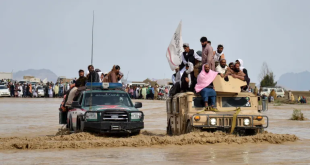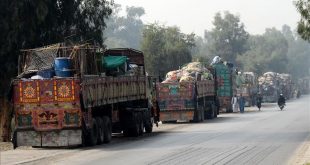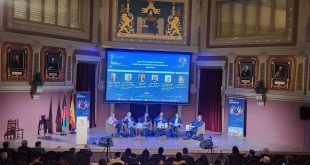AT News Report
KABUL: The International Organization for Migration (IOM) and the United Nations High Commissioner for Refugees (UNHCR) have launched their annual joint report on returns to Afghanistan from Pakistan and Iran for 2018.
Each year, registered Afghan refugees and undocumented Afghans make the decision to return home from Iran and Pakistan, notwithstanding the difficult environment in Afghanistan. Over 820,000 returned in 2018 – 94 per cent of them from Iran – the highest number from Iran ever recorded in a single year.
The primary needs of returning Afghans include food, jobs, access to land, long-term shelter, and access to services including healthcare, education and legal assistance.
According to IOM and UNHCR, to Reintegration in Afghan society is difficult for returnees, with the country still mired in conflict and with high levels of internal displacement, limited services and few jobs. When combined with the drought and flooding witnessed across the country in 2018, the high number of returns further burden the already over-stretched absorption capacity of host communities.
Afghanistan’s Ministry of Refugees and Repatriation coordinates the provision of humanitarian post-arrival and reintegration assistance, in close cooperation with UNHCR and IOM. UNHCR coordinates efforts to help returning registered refugees, while IOM coordinates assistance to undocumented returnees.
“Afghan returnees face many challenges upon returning to Afghanistan,” said IOM Chief of Mission, Laurence Hart. “IOM and UNHCR are committed to working toward sustainable solutions for Afghan returnees, regardless of their status.”
The two organizations have further enhanced their cooperation in Afghanistan with the signing of a Data Sharing Agreement earlier this week, and they are also exploring the potential for co-location of return facilities in Kandahar province.
“UNHCR and IOM continue to work together to assist in the return of tens of thousands of Afghans each year. As our joint report details, the true challenge lies in a whole-of-community response that leaves no one behind,” UNHCR’s Country Representative, Caroline Van Buren, said. “Through commitment to the Comprehensive Refugee Response Framework there is an opportunity to not only address the impact of returns on host communities, but to ensure that development programmes and policies are focused on successful reintegration.”
UNHCR and IOM appreciate the continued support of their donors, including Australian Aid, Belgium, Canada, Czechia, Denmark, the European Union, Finland, France, Germany, Italy, Japan, Republic of Korea, Luxembourg, Netherlands, Norway, Spain, Switzerland, United Kingdom and United States.
 Afghanistan Times
Afghanistan Times




